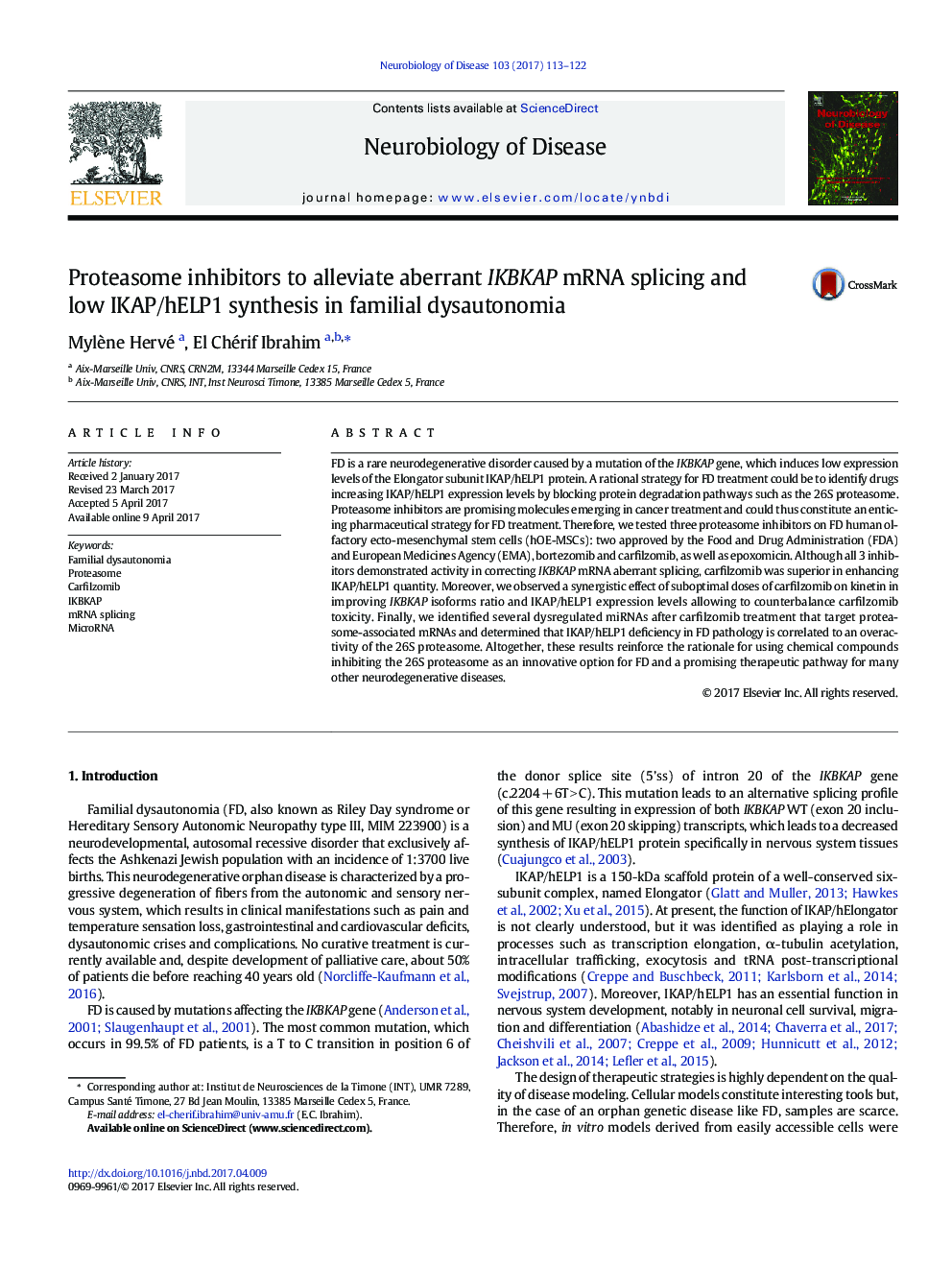| کد مقاله | کد نشریه | سال انتشار | مقاله انگلیسی | نسخه تمام متن |
|---|---|---|---|---|
| 5630619 | 1580618 | 2017 | 10 صفحه PDF | دانلود رایگان |

- Proteasome inhibitors increase exon 20 inclusion in IKBKAP mRNA from FD cells.
- Epoxyketones upregulate IKAP/ELP1 protein level in FD cells.
- Carfilzomib modulate expression of microRNAs targeting proteasome subunits.
- Proteasome activity is enhanced in FD cells compared to control cells.
- Combination of already approved drugs may offer novel therapeutic strategy for FD.
FD is a rare neurodegenerative disorder caused by a mutation of the IKBKAP gene, which induces low expression levels of the Elongator subunit IKAP/hELP1 protein. A rational strategy for FD treatment could be to identify drugs increasing IKAP/hELP1 expression levels by blocking protein degradation pathways such as the 26S proteasome. Proteasome inhibitors are promising molecules emerging in cancer treatment and could thus constitute an enticing pharmaceutical strategy for FD treatment. Therefore, we tested three proteasome inhibitors on FD human olfactory ecto-mesenchymal stem cells (hOE-MSCs): two approved by the Food and Drug Administration (FDA) and European Medicines Agency (EMA), bortezomib and carfilzomib, as well as epoxomicin. Although all 3 inhibitors demonstrated activity in correcting IKBKAP mRNA aberrant splicing, carfilzomib was superior in enhancing IKAP/hELP1 quantity. Moreover, we observed a synergistic effect of suboptimal doses of carfilzomib on kinetin in improving IKBKAP isoforms ratio and IKAP/hELP1 expression levels allowing to counterbalance carfilzomib toxicity. Finally, we identified several dysregulated miRNAs after carfilzomib treatment that target proteasome-associated mRNAs and determined that IKAP/hELP1 deficiency in FD pathology is correlated to an overactivity of the 26S proteasome. Altogether, these results reinforce the rationale for using chemical compounds inhibiting the 26S proteasome as an innovative option for FD and a promising therapeutic pathway for many other neurodegenerative diseases.
Journal: Neurobiology of Disease - Volume 103, July 2017, Pages 113-122